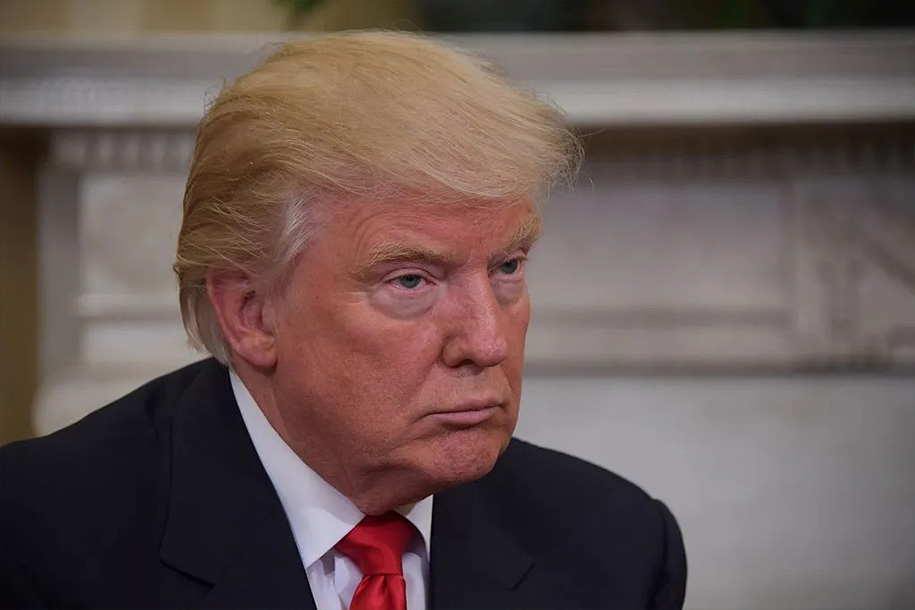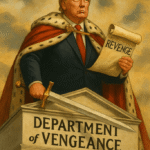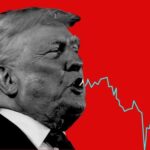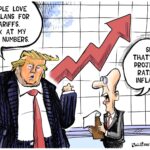Introduction to Trump Russia Influence
We don’t know the full story behind the Trump administration’s relationship with Russia.
Did ousted national security adviser Michael Flynn take the fall for the White House? Who else knew of his improper discussions with Russian officials about reversing Obama’s sanctions for election meddling? Why does Trump himself defend Russia even, at times, at U.S. expense? How did Trump Russia Influence affect his election, if at all?
Congressional Investigations and Trump Russia Influence
{mosads}Congressional investigations underway may never reveal exactly what Russia did, and we may never know what drives President Trump’s penchant for President Putin.
How Trump’s Policies Advance Russia’s Geopolitical Goals
But Russia’s geopolitical interests in boosting Trump get clearer every day. Trump offers Putin opportunities to expand Russia’s sphere of influence, weaken NATO, shed U.S. and European sanctions, and upset global trade.
Trump’s Immigration Ban and Its Impact on Trump Russia Influence
Trump’s order banning immigration from seven predominantly Muslim countries serves Russia’s interest by fostering instability and undermining U.S. influence in the Middle East.
He rolled it out in Putinesque style, with no interest in advice and no tolerance for dissent. Trump sought no counsel from the Department of Homeland Security or the National Antiterrorism Center. Those who questioned it, including State Department staff, the acting Attorney General and the federal Judge who temporarily blocked it, he simply fired or personally attacked.
But demonizing critics doesn’t change the fact that the ban will aggravate and seem to justify Muslim hatred of the U.S. It will be fodder for groups such as ISIS, and elevate the risk of another terrorist attack on the U.S. It will diminish our influence in the Middle East and make room for stronger Russian influence.
Trump’s Trade Policies and Their Impact on Trump Russia Influence
Trump’s trade policies also play into Russia’s hands. Withdrawing from NAFTA and the Transpacific Partnership and imposing tariffs on China would hurt the U.S. economy, weakening our economic and military power to restrain Russia.
Past tariffs have sparked trade wars that damaged economies worldwide, including ours. When the U.S. imposed import tariffs in 1930, other countries retaliated; net U.S. exports declined 40 percent and US unemployment surged.
Economic weakness would lead to downgrading sovereign debt, driving up interest rates and making it more difficult and expensive for countries to borrow.
Whether central banks could be effective under such circumstances is unclear. The malaise would spread to countries that depend on exports for growth, such as Germany, Italy and France. Some would leave the EU, making it easier for Russia to expand its influence westward.
Eastern European Sentiments and Trump Russia Influence on EU Disintegration
Until recently, Eastern European members viewed the EU as a road to modernity, prosperity, better governance, and protection against Russia. Now pro-Russian sentiments are rising, as recent elections in Moldova and Bulgaria attest.
As Mark Hendrick, a British member of parliament who opposed Brexit, points out, EU and NATO membership of Poland, the Czech Republic, Slovakia and other former Warsaw Pact countries “is not a trend … (Russia) want(s) to see continue.”
Trump Russia Influence and Its Impact on European Politics
Trump’s election may help Russia get its way.
There are reports Russia meddled in the Brexit vote to encourage the UK to leave the EU. But Trump’s victory also encourages anti-EU sentiment. French rightist presidential contender Marine Le Pen proposes an EU membership referendum, and says she hopes to replicate Trump’s success. Dutch anti-EU prime ministerial candidate Geert Wilders is doing better than expected. In this environment, Angela Merkel’s reelection is in doubt.
If the EU unraveled, countries like Sweden would be more vulnerable to Russian aggression (Putin already sends submarines into its waters).
Trump Russia Influence on NATO and Russian Aggression
In mid-January, Trump repeated his assertion that NATO is “obsolete,” a sentiment that U.S. military leaders and NATO members and prospective members don’t share. Pro-Russian violence is escalating again in Ukraine, and a weakened NATO would embolden Russian aggression beyond Ukraine and Crimea. Putin knew that Hillary Clinton would never abandon NATO.
That would have been reason enough for him to want Trump in the White House.
Conclusion: The Real Beneficiaries of Trump Russia Influence
Trump often says, and repeated to Fox News host Bill O’Reilly, “It’s better to get along with Russia than not…that’s a good thing.” But for whom is it good?
For Russia, certainly. For the U.S. and the rest of the world, not so much.







